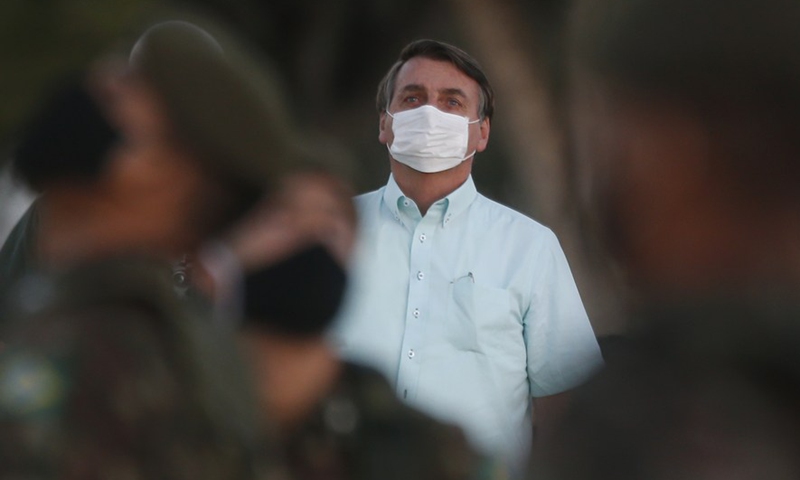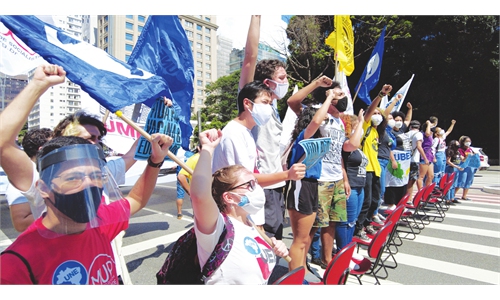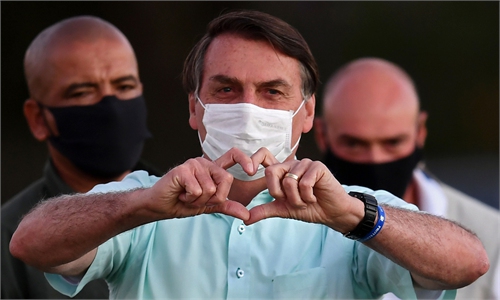
Brazil's President Jair Bolsonaro attends the flag-raising ceremony at his official residence in Brasilia, Brazil, July 22, 2020. (Photo by Lucio Tavora/Xinhua)
Twenty-one scientists awarded one of Brazil's highest honors, the National Order of Scientific Merit, rejected their medals Saturday after President Jair Bolsonaro withdrew two colleagues whose work apparently discomfited his government from the list of honorees.The far-right president named 25 people Wednesday to receive the honor, which Brazil created in 1992 to recognize the most important contributions to science and technology.
However, two days later, he withdrew the names of two prominent scientists from the list.
One was Dr Marcus Lacerda, who published one of the first studies finding the drug chloroquine is ineffective against COVID-19 - rebutting Bolsonaro's pet strategy for fighting the pandemic.
The other was Dr Adele Benzaken, who was fired as director of the Brazilian health ministry's HIV/AIDS department when Bolsonaro took office in 2019, after her department published a pamphlet aimed at transgender men.
In protest, all 20 of the other scientists and one of the three "national personalities" named by Bolsonaro to receive the honor rejected their medals in an open letter.
"This is yet another clear demonstration of the persecution of scientists and the latest step in the current government's systematic attack on science and technology," they said.
"This act of protest, which saddens us, expresses our indignation at the destruction of Brazil's university system and of science and technology in general."
Bolsonaro has faced sharp criticism from the scientific community over budget cuts for research and technology, as well as his frequent rejection of scientific findings and history of spreading misinformation, particularly on COVID-19.
AFP



